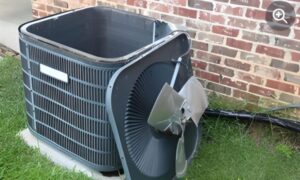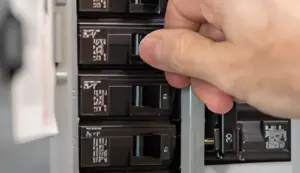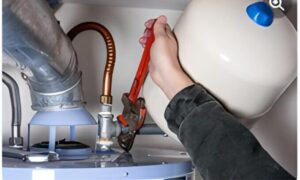Are you constantly searching for ways to save money on your energy bills? Well, guess what? There's a simple solution right at your fingertips. By adjusting your AC temperature to the perfect level, you can achieve significant savings without sacrificing your comfort. But what exactly is the ideal AC temperature for maximum energy efficiency? Stick around, because in this discussion, we're going to reveal the answer and provide you with practical tips to cut down on your cooling costs. So get ready to discover the sweet spot that will keep you cool and your wallet happy.
Best AC Temperature for Energy Saving
To achieve optimal energy savings, it is recommended to set your AC thermostat a few degrees higher during the summer months. The impact of AC temperature on electricity bills is significant, as cooling accounts for a significant portion of your energy usage. The Department of Energy suggests setting the thermostat at 78 degrees for both energy savings and comfort. However, you can experiment with reducing the temperature setting by a degree or two to find the optimal comfort level for you. It's important to find a balance between comfort and savings. Additionally, consider using energy-saving and comfort-enhancing tips, such as utilizing ceiling fans or standalone fans to increase airflow and create a cooler feeling. By adjusting your AC temperature settings based on your climate and personal preferences, you can save energy and reduce your electricity bills.
Recommended AC Temperature for Summer
Setting the thermostat at the recommended temperature can help optimize energy savings and comfort during the summer months. The Department of Energy suggests setting the thermostat at 78 degrees for energy savings and comfort. However, you may need to adjust the temperature settings to find the right balance for your needs. Experiment with reducing the temperature setting by a degree or two to find your optimal comfort level. Additionally, consider using energy-saving and comfort-enhancing tips such as using ceiling fans, closing window coverings during the day, and opening windows at night. Remember, finding the balance between comfort and savings is key. If you have a programmable or smart thermostat, take advantage of its features for automated temperature adjustments.
Setting the Thermostat When You're Away
When you're away from home, it is recommended to increase the temperature setting on your thermostat by 7-10 degrees to save energy. Adjusting temperature settings for vacation is a simple and effective way to reduce unnecessary cooling and lower your energy consumption. Avoid completely shutting down the system, as it may actually result in higher energy usage when you return. Setting the thermostat to a colder temperature doesn't cool your home faster, but it does increase unnecessary expenses. Instead, consider installing a programmable or smart thermostat for convenient temperature adjustments. You can even use connected devices like smartphones or tablets to control your thermostat settings remotely. By adjusting your thermostat when you're away, you can save energy and reduce your utility costs.
Cooling Your Home Without AC
While your air conditioner may be the go-to option for cooling your home, there are also effective ways to keep your space comfortable without relying on AC. Using fans for energy efficient cooling is one such option. Ceiling fans or standalone fans can increase airflow and create a cooler feeling in your home. Another natural way to cool your home without AC is to strategically manage your windows. Close window coverings during the day to reduce heat from sunlight, and open windows at night to let in cool air. Adding weather stripping to seal windows and doors can also improve insulation and keep your home cooler. Lastly, avoid using heat-generating appliances during the day to prevent unnecessary heat buildup. By incorporating these strategies, you can stay comfortable and reduce your reliance on AC.
Regular Maintenance for Air Conditioners
Regular maintenance is essential for keeping your air conditioner operating efficiently and effectively. By conducting regular maintenance on your AC unit, you can benefit from improved efficiency, performance, and energy savings. One option is to hire a professional HVAC technician to perform an annual maintenance check. They can assess the system's performance, clean or replace air filters, and check refrigerant levels. This ensures proper air circulation, optimizes cooling, and reduces energy costs. Additionally, you can also perform some maintenance tasks yourself. Clean or replace air filters regularly to ensure proper airflow and energy efficiency. Clean the outdoor and evaporator coils to improve system performance and indoor air quality. By taking these steps, you can prolong the lifespan of your air conditioner and enjoy a comfortable and cost-effective cooling experience.









